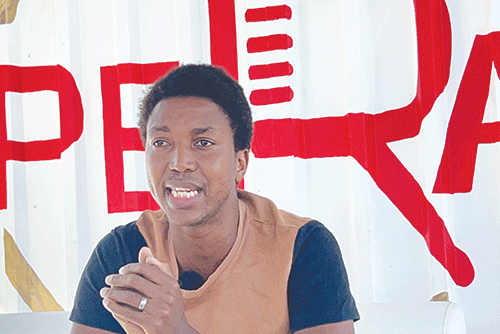The challenge to the constitutionality of section 179(1) (b) of the Criminal Procedure Act (CPA) brought by fraud accused Manga Nawa-Mukena and her husband Joseph Mukena as well as Michael Amushelelo started on Tuesday before three judges of the Windhoek High Court.
Judges Hosea Angula, Thomas Masuku and Nate Ndauendapo reserved their judgment to 27 August at the end of arguments by Kadhila Amoomo, on behalf of the applicants, and Nixon Marcus on behalf of the prosecutor general.
The Mukenas and Amushelelo want the High Court to declare the section that gives police officers authority to issue notices to institutions to get personal information on suspects in a criminal case unconstitutional.
Amoomo said they are looking for an order from the court reviewing and setting aside all notices issued in terms of section 179(1) (b) of the CPA in their trial, declaring that all documents obtained by way of notices issued in terms of the section are inadmissible as evidence on the basis that it was unconstitutionally obtained.
If the court declines, they will ask for a declarator that the section is unconstitutional. Should the court fail to do this, they will ask for a declarator that section 64(10(d) of the Banking Institutions Act is unconstitutional.
Section 179(1)(b) of the CPA makes provision for any police officer to, by way of notices issued, instruct any person to either appear in a lower court, or for any institution to provide documentation needed in a criminal investigation. The applicants argue that the section is vague and open to abuse by the police, a situation they claim happened in their case.
Section 64 of the Banking Institutions Act provides for the confidentiality of banking details, except in the case of a criminal trial.
However, they said, they reserve their right to challenge the Banking Act in the event the judge refused to consider their challenge to the CPA, as it is their understanding that their bank records were obtained using notices issued according to the impugned CPA.
According to them, section 179 of the CPA does not require judicial oversight, which makes it dangerous and unconstitutional.
“There is absolutely no judicial oversight, and because of the lack of judicial oversight, same can be subjected to abuse,” Nawa-Mukena stated in an affidavit submitted to the court.
She continued: “The section does not make provision for judicial oversight, and because the section is not clearly articulated as to avoid being vague. The section also does not inculcate sufficient procedures to preclude abuse.”
Marcus argued that the civil court is not the right court to decide the issue.
According to him, the correct platform will be the trial court which will have to decide whether the evidence obtained in such a manner is admissible or not.
He also said that the court can send the matter to Parliament to rectify the section.


